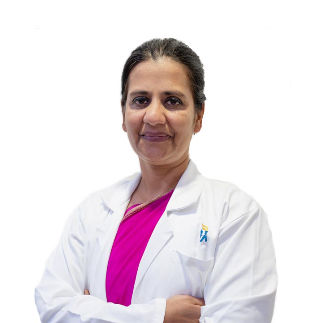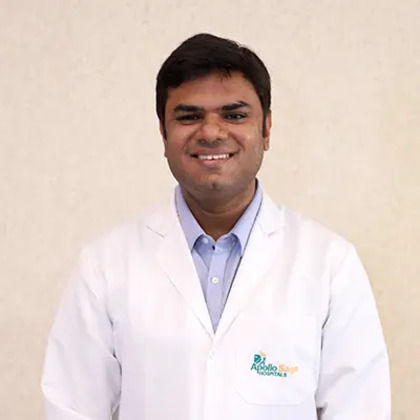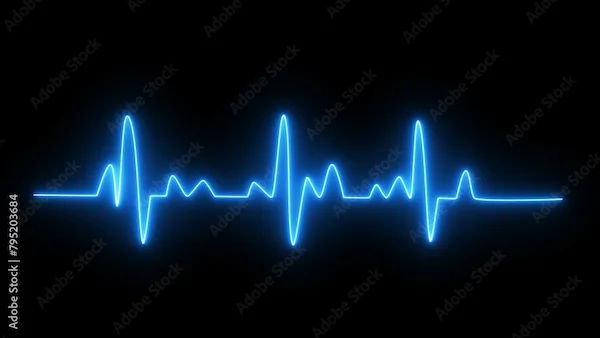OCT Applications in Ophthalmology
Discover how Optical Coherence Tomography (OCT) is used in ophthalmology to detect eye conditions like glaucoma, macular degeneration, diabetic retinopathy and more. Learn who should get an OCT scan and what to expect during the procedure.


Introduction
If you've ever visited an eye specialist, you might have heard about Optical Coherence Tomography (OCT), a common diagnostic test for eye health. It plays a key role in diagnosing and monitoring various eye conditions like glaucoma, macular degeneration, and diabetic retinopathy. OCT is commonly used during routine eye check-ups or when you have vision problems that need closer examination.
But what exactly is OCT, and why is it important for your eye health? Let’s break it down in simple terms.
What is OCT?
OCT is a non-invasive imaging test that uses light waves to take detailed pictures of the different layers of your retina, which is the light-sensitive tissue at the back of your eye. Think of it like an ultrasound, but instead of sound waves, it uses light to create high-resolution images.
This test helps eye doctors (ophthalmologists) detect, monitor, and manage various eye diseases early, often before symptoms appear.
Consult a Top Eye Specialist for the best advice
Why is OCT Important?
Many eye diseases, like glaucoma, macular degeneration, and diabetic retinopathy, develop slowly and may not show symptoms until significant damage has occurred. OCT allows doctors to:
- Detect problems early – before vision loss happens.
- Monitor disease progression – to see if treatments are working.
- Guide treatment decisions – for better outcomes.
Common Conditions Diagnosed with OCT
1. Age-Related Macular Degeneration (AMD)
- Affects the central part of the retina (macula), leading to blurred or distorted vision.
- OCT helps detect thinning or swelling in the macula.
2. Diabetic Retinopathy
- Caused by diabetes, this condition damages blood vessels in the retina.
- OCT can spot fluid leakage or swelling (macular edema).
3. Glaucoma
- A condition where increased eye pressure damages the optic nerve.
- OCT measures nerve fiber thickness to track glaucoma progression.
4. Retinal Detachment or Tears
- OCT can identify tiny retinal tears before they become serious.
5. Macular Holes or Epiretinal Membranes
- These conditions cause vision distortion, and OCT helps assess their severity.
What to Expect During an OCT Scan?
The test is quick, painless, and safe:
1. Preparation: No special preparation is needed. You may be given eye drops to dilate your pupils for better imaging.
2. The Procedure:
- You’ll sit in front of the OCT machine and rest your chin on a support.
- The machine scans your eye in just a few seconds without touching or discomfort.
3. After the Test:
- If your pupils were dilated, your vision may be blurry for a few hours.
- Avoid driving immediately after the test.
Who Should Get an OCT Scan?
You may need an OCT if you:
- Have diabetes (to check for diabetic retinopathy).
- Are over 50 (to screen for AMD).
- Have a family history of glaucoma or macular degeneration.
- Experience sudden vision changes (blurriness, dark spots, or distortion).
- Are undergoing treatment for an existing eye condition.
Tips for Maintaining Good Eye Health
While OCT helps diagnose eye problems early, you can also take steps to protect your vision:
- Regular Eye Check-ups – Especially if you’re over 40 or have risk factors like diabetes.
- Healthy Diet – Eat leafy greens, fish, nuts, and fruits rich in vitamins A, C, and E.
- Control Blood Sugar & Blood Pressure – High levels can damage retinal blood vessels.
- Wear Sunglasses – Protect your eyes from harmful UV rays.
- Quit Smoking – Smoking increases the risk of AMD and cataracts.
- Limit Screen Time – Follow the 20-20-20 rule (every 20 minutes, look 20 feet away for 20 seconds).
When to See a Doctor?
Schedule an eye exam immediately if you notice:
- Blurred or distorted vision
- Dark spots or floaters
- Sudden vision loss
- Difficulty seeing in low light
Early detection can save your sight!
Final Thoughts
OCT is a powerful tool in modern eye care, helping detect problems before they affect your vision. If you’re at risk for eye diseases or experiencing symptoms, don’t wait; get an OCT scan and protect your eyesight for years to come!
Consult a Top Eye Specialist for the best advice
Consult a Top Eye Specialist for the best advice

Dr. Smita Gaurav Gujarathi
Ophthalmologist
4 Years • MBBS DNB (Opthal)
Nashik
Apollo Hospitals Nashik, Nashik

Dr. Sujit Pahari
Ophthalmologist
22 Years • MBBS, DNB, DOMS Ophthalmologist/ Eye Surgeon. FIC (Ophthal).
Bilaspur
Apollo Hospitals Seepat Road, Bilaspur

Dr. Indrani Goswami
Ophthalmologist
17 Years • MBBS, M.S
Guwahati
Apollo Excelcare Hospital, Guwahati

Dr. Uma Mallaiah
Ophthalmologist
21 Years • MBBS, DO, FRCS
Delhi
Apollo Hospitals Indraprastha, Delhi
(25+ Patients)

Dr. Siddharth Malaiya
Ophthalmologist
10 Years • MS Opthal,Cornea Transplant
Bhopal
Apollo Sage Hospitals, Bhopal
(25+ Patients)
Consult a Top Eye Specialist for the best advice

Dr. Smita Gaurav Gujarathi
Ophthalmologist
4 Years • MBBS DNB (Opthal)
Nashik
Apollo Hospitals Nashik, Nashik

Dr. Sujit Pahari
Ophthalmologist
22 Years • MBBS, DNB, DOMS Ophthalmologist/ Eye Surgeon. FIC (Ophthal).
Bilaspur
Apollo Hospitals Seepat Road, Bilaspur

Dr. Indrani Goswami
Ophthalmologist
17 Years • MBBS, M.S
Guwahati
Apollo Excelcare Hospital, Guwahati

Dr. Uma Mallaiah
Ophthalmologist
21 Years • MBBS, DO, FRCS
Delhi
Apollo Hospitals Indraprastha, Delhi
(25+ Patients)

Dr. Siddharth Malaiya
Ophthalmologist
10 Years • MS Opthal,Cornea Transplant
Bhopal
Apollo Sage Hospitals, Bhopal
(25+ Patients)



.webp)
